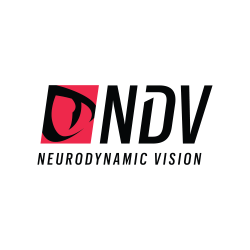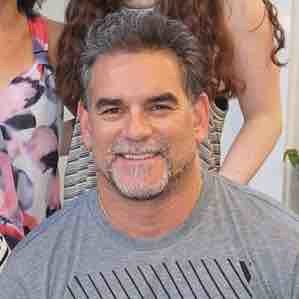Visual Insight with Ryan Harrison:
Ryan Harrison, founder of Slow The Game Down and Dir. of Training for NDVPerformance invites you to review 22 episodes of Visual Insights zoom conference calls with today leading coaches, trainers, athletes and leading performance experts. These in-depth interviews highlight the importance and value of visual-cognitive performance to achieve success at the highest levels.
A list of the experts include:
Sean Casey – Baseball; Dr. Craig Farnsworth - Golf: Chelsea Goodacre - Softball; Craig Snider - Softball; John Buck - Baseball: Callix Crabbe - Baseball; Dr. Scott Lewis - Sports Vision; Rolando Garza & Jeff Bajenaru; Baseball; Ray Carrasco - Golf; Don Wakamatsu - Baseball; Paul Phillips - Sports Vision; Ben Rosenthal - Baseball; Dr. Lindsey Migliore & Travis Cochran - eSports; Grant Fuhr - Hockey; Reggie Smith - Baseball; Dusty Wathan - Baseball; Todd Hodnett - Shooting; Dennis Rogers - Coaching; Dyana Bullinger - Sports Vision; Jason Lane & Howie Clark - Baseball; Kevin O'Neil - Tennis; Jeff Krushell - Performance.
Pete Caliendo: Baseball Outside The Box
Episode 12, Part 1 of 2 – Level I, II & III: (2016)
A Game Changer = Vision Training (2019)
The Mental SweetSpot
Strong Mind Sports with Clint McGill
Episode 20 - You can't think and see at the same time - Vision Training with Ryan Harrison
Krush Performance: Slow The Game Down & Improve Your
Performance Right Now
Radio Influence Staff May 20, 2019
Vision may be one of the most underestimated, maybe misunderstood and certainly one of the most powerful influencers on your Performance. It is also one of the most under-trained areas of athlete development. Today, we talk about your vision and how training vision can impact your performance right now. We are joined by Krush Favorite, Ryan Harrison of Slow The Game Down, to discuss the myths and misconceptions surrounding sport vision and what you need to know to impact your performance right now.
This episode of Krush Performance is dedicated to Ryan’s father, Dr. Bill Harrison, a true sport pioneer who’s life long dedication to sports vision has made us all better.
It’s All in the Eyes: How Eyesight Can Make or Break an Athlete’s Career
CTECH by Catalyst: Ouriel Daskal0 4.05.19
Good vision can be much more crucial for an athlete than particularly strong lungs or the ability to run very quickly, according to Daniel Laby, an optometrist focused on eye care for professional athletes. In recent years, every sports field has been meticulously analyzed to figure out which aspects of the game, the match, or the athletes can be improved, and if so, how.
Technological advancements now allow researchers to utilize fragments of data in order to create better athletes. This also lets teams assess the strengths and weaknesses of each athlete and pinpoint the ones that have meaningful advantages. Sports vision, a relatively new field of vision care aimed at improving the abilities of athletes, is one such too .
IU, baseball team partner for vision training study
By MICHAEL RESCHKE, The Herald-Times May 23, 2019 Updated: May 23, 2019 10:28 a.m.
Vision training regimens have been around, at a clinical level, for at least 30 years, Port said. They have grown in popularity, especially during the past 15 years, as the cost of computers and other related equipment has decreased. However, no one had tried to do a systematic, rigorous study of the effectiveness of these methods.
Greg Appelbaum, an associate professor of psychiatry and behavioral sciences at the Duke University School of Medicine, wanted to change that. Appelbaum was familiar with Port's work on concussion testing in athletes and reached out to him. Appelbaum already had a grant from the U.S. Army Research Office for a related study. He pitched adding the vision training study on to that and the Army provided Port with about $24,000 for his portion. "They have an interest in vision training to make better soldiers," Port said. Last fall, the two researchers conducted a pilot study with baseball players at Duke and IU. Players in Bloomington went to the Rink Center for Sports Medicine and Technology at Memorial Stadium three times a week for nine weeks.
The vision training involved three devices: a light rail, strobe glasses and sensory tablets. To measure effectiveness, players went through five days of batting practice at Bart Kaufman Field before and after the vision training. So far, the training seems to have had a positive impact, Port said, but it will be another year before the results are published. "We need to repeat this with a larger sample size," Port said. In addition to baseball players, Port said, the IU softball team has agreed to participate in the study next fall. Understanding how to effectively and efficiently improve a player's hand-eye coordination could help Mercer achieve that goal. "If it works, this could be a fundamental part of our program for the next 20 years," he said.p>
Warriors' Stephen Curry fixed his vision
Thursday, April 4, 2019 OAKLAND, Calif. (KGO)
Golden State Warriors star Stephen Curry, who is considered one of the greatest three-point shooters in NBA history, has struggled with an astigmatism and not been able to see clearly his entire career. He's been shooting all those three-pointers with blurry vision. How insane is that?? Curry suffers from a cornea condition called Keratoconus, a disease where the cornea thins over time and begins to change from its natural circular shape to one similar to a cone. The cone shape deflects light as it enters the eye and causes blurred vision. While regular vision can be corrected with glasses, they are ineffective for people with Keratoconus because of the irregular, cone shape of the cornea. Moderate Keratoconus can be corrected with a special type of contact lens.




Comments